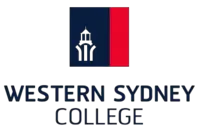
How do I become a tax accountant?
Bachelor of Commerce (Taxation)
- There are no mandated entry requirements.


Advanced Diploma of Accounting
- Completed Diploma of Accounting or equivalent qualifications AND
- Completed the BSBTEC402 Design and produce complex spreadsheets (or equivalent)








Bachelor of Commerce (Accounting)
- There are no mandated entry requirements.








Bachelor of Business (Taxation)
- There are no mandated entry requirements.


Graduate Certificate in Professional Accounting
- There are no mandated entry requirements.








Master of Professional Accounting (Advanced)
- There are no mandated entry requirements.




Graduate Diploma of Professional Accounting
- There are no mandated entry requirements.



Graduate Certificate in Accounting
- There are no mandated entry requirements.




Bachelor of Professional Accounting
- There are no mandated entry requirements.


Related occupations
Credit Officer
A Credit Officer processes loan applications, assesses risks, analyses financial data, and recommends approval, requiring strong analytical, banking, and customer service skills.
Payroll Officer
A Payroll Officer manages an organisation's payroll by processing wages, maintaining employee records, and ensuring accurate tax and deductions.
Assistant Accountant
An Assistant Accountant supports a financial team by managing accounts, processing transactions, and preparing reports while adapting to varied tasks.
Accounts Clerk
An Accounts Clerk handles accounts payable and receivable, managing paperwork, data entry, and reconciling statements with great attention to detail.
Payroll Clerk
A Payroll Clerk processes employee wages, maintains records, calculates payments, and responds to inquiries, ensuring accurate payroll management.
Accounts Officer
An Accounts Officer manages financial records, oversees income and expenditures, processes invoices, reconciles statements, and prepares reports efficiently.
Bookkeeper
A Bookkeeper manages financial records, tracks transactions, prepares reports, and reconciles statements, ensuring accuracy and detail.
Accounts Receivable Officer
An Accounts Receivable Officer ensures timely payments for products/services, generates invoices, processes payments, and maintains customer accounts efficiently.
Accounting Manager
An Accounting Manager oversees the accounts department, supervising teams, managing payroll, and preparing financial reports and budgets.
Financial Controller
A Financial Controller directs finances, manages budgets, develops strategies, and analyzes data with strong organizational and leadership skills.
Forensic Accountant
A Forensic Accountant analyses financial data for legal cases, identifies discrepancies, and presents findings related to fraud and insolvency.
Auditor
An Auditor reviews financial data for accuracy, prepares reports on findings, and recommends improvements to accounting systems.
Chief Financial Officer (CFO)
A Chief Financial Officer (CFO) manages a company’s finances, overseeing budgets, making strategic recommendations, and leading the finance team.
Accountant
An Accountant manages financial records and processes accounts, ensuring accuracy in income, expenditure, and financial reporting.
Tax Agent
Tax Agents help clients with tax returns, GST, and superannuation, offering advice on structuring and taxation while registered with the TPG.
Project Accountant
A Project Accountant manages project finances, balances budgets, monitors income and expenditure, and prepares reports while ensuring detail and communication.
Business Services Accountant
A Business Services Accountant manages financial tasks, primarily focusing on taxation, preparing reports, and advising clients on tax matters.
Company Accountant
A Company Accountant manages financial operations, including budgets, reports, and stakeholder advice, ensuring accuracy and compliance.
Trust Accountant
A Trust Accountant oversees trust account finances, managing transactions, preparing reports, and ensuring compliance with regulations.
Financial Accountant
A Financial Accountant oversees financial operations, prepares reports, manages accounts, and advises management on financial positions.
Group Accountant
A Group Accountant oversees financial operations for large organisations, ensuring efficient accounting systems, reporting, and forecasting.
Fund Accountant
A Fund Accountant oversees the financial activities of investment portfolios, analysing performance, preparing reports, and ensuring compliance.
Internal Auditor
An Internal Auditor reviews financial data, identifies risks, prepares reports, and makes recommendations while ensuring accuracy and teamwork.
Systems Accountant
A Systems Accountant manages financial systems, ensures compliance, develops procedures, trains staff, and provides analytical insights to management.
Commercial Analyst
A Commercial Analyst evaluates business processes to enhance efficiency, providing recommendations and collaborating with clients to improve performance.
Cost Controller
A Cost Controller manages budgets, monitors costs, tracks spending, suggests savings, and reports expenses while communicating with stakeholders.
Management Accountant
A Management Accountant manages financial activities, prepares reports, sets budgets, makes forecasts, and advises on costs and pricing.
Certified Practicing Accountant
Certified Practising Accountants (CPAs) manage financial operations, focusing on reporting, tax, and compliance while providing strategic insights.
Chartered Accountant
A Chartered Accountant oversees financial matters, focusing on reporting, auditing, and tax planning while ensuring compliance and offering strategic advice.
Taxation Specialist
A Taxation Specialist advises on tax planning and compliance, analysing financial records, preparing returns, and optimising tax efficiency.
Senior Accountant
A Senior Accountant oversees financial operations, ensuring accurate reporting, compliance, budget management, and process improvements.
Tax Manager
A Tax Manager oversees tax strategy, compliance, and audits, minimising liabilities, and providing strategic advice, requiring strong analytical and communication skills.
Senior Auditor
A Senior Auditor evaluates financial records for accuracy and compliance, prepares reports, and recommends improvements in financial processes.
Tax Auditor
A Tax Auditor ensures compliance with tax laws by examining financial records, identifying discrepancies, and preparing detailed audit reports.
Tax Adviser
A Tax Adviser offers tax advice and compliance services to clients, preparing returns and minimising liabilities through strategic planning.
Corporate Accountant
A Corporate Accountant manages financial operations, ensuring accurate reporting, compliance, and insights for informed decision-making.
BAS Agent
A BAS Agent prepares and lodges Business Activity Statements, assisting businesses with GST and tax obligations while ensuring data accuracy.
Common questions
How much does a Tax Accountant earn?
In Australia, a full time Tax Accountant generally earns $1,875 per week ($97,500 annual salary) before tax. This is a median figure for full-time employees and should be considered a guide only. As you gain more experience you can expect a potentially higher salary than people who are new to the industry.
What are the job opportunities for a Tax Accountant?
This area of accounting has grown very strongly in recent years. There are currently 11,000 Tax Accountants in Australia compared to 8,600 five years ago. Tax Accountants may find work across all regions of Australia.
Source: Australian Government Labour Market Insights
How do I become a Tax Accountant?
If you’re thinking of starting a career as a Tax Accountant you could consider enrolling in an Advanced Diploma of Accounting. This qualification allows you to specialise in taxation accounting with subjects such as working with financial systems, preparing financial reports, auditing financial records and interpreting financial statistics.
Further reading


What can you do with a Diploma of Accounting?
29th September 2021)

